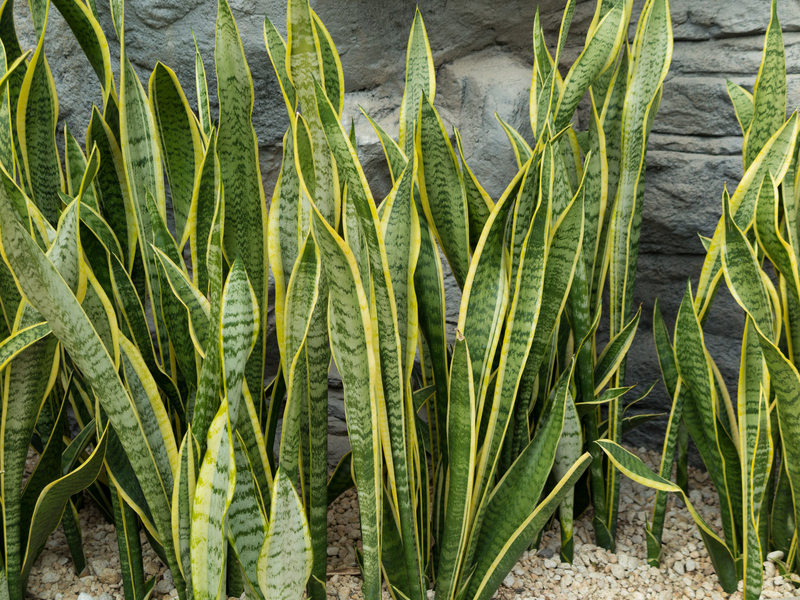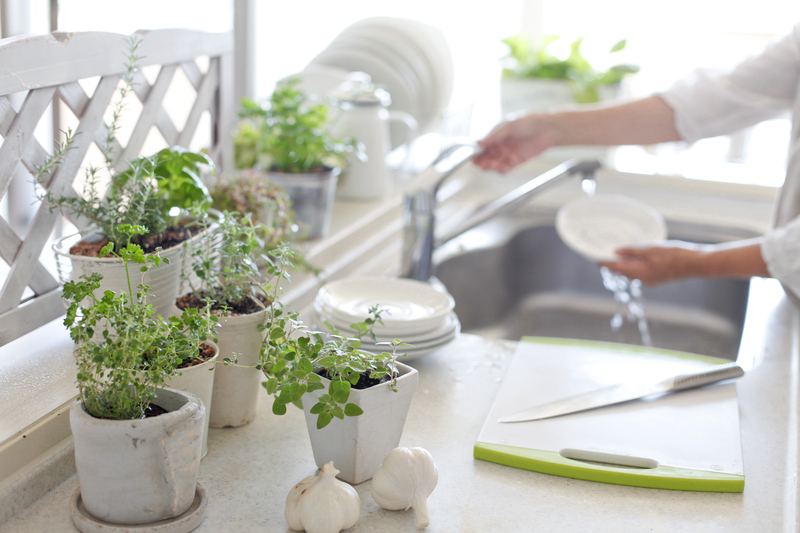Navigating the World of Herb Gardening with Confidence
Posted on 17/08/2025
Navigating the World of Herb Gardening with Confidence
Herb gardening has long delighted gardeners of every skill level, offering a perfect blend of beauty, aroma, and practicality for any living space. Whether nestled on a sunny apartment windowsill or sprawling across a backyard, herbs promise fresh flavors and health benefits throughout the year. If you're ready to begin exploring the world of herb gardening, this comprehensive guide will help you embark with clarity, confidence, and joy.
Why Choose Herb Gardening?
Herb gardening is incredibly rewarding. Not only do herbs elevate your meals and home remedies, but they also bring elegance, fragrance, and natural beauty to any setting. Here's why cultivating herbs is an excellent choice:
- Saves money on buying packaged herbs from the store.
- Freshness guaranteed - snip what you need, when you need it.
- Easy to start, even for novice gardeners.
- Therapeutic and stress-relieving.
- Many herbs have medicinal properties and ancient histories.
- Enhances your culinary adventures with unique flavors.
- Encourages sustainable living and supports local pollinators like bees.

Understanding Different Types of Herbs
Before you start, it's essential to understand the main types of herbs so you can choose ones that align with your gardening goals:
Annual Herbs
- Basil--Vibrant and aromatic, ideal for pesto and salads.
- Cilantro--Adds zesty flair to salsas and Asian-inspired dishes.
- Dill--Perfect for pickles and seafood recipes.
Perennial Herbs
- Mint--Hardy, spreading, and great for teas and desserts.
- Thyme--Delicate flavor, outstanding with roasted vegetables.
- Oregano--A staple for pizzas and pasta sauces.
- Chives--Mild onion flavor, wonderful in salads or topped on soups.
Biennial Herbs
- Parsley--Takes two years to complete its lifecycle, excellent garnish or salad ingredient.
- Caraway--Aromatic seeds, often used in baking or pickling.
Understanding these distinctions helps you plan for seasonal changes and enjoy a consistent supply of fresh herbs.
Planning Your Herb Garden With Confidence
Strategic planning ensures a lush, thriving herb garden tailored to your needs. Follow these steps:
1. Evaluate Your Space
- Windowsill Gardens: Perfect for apartments or small spaces. Choose compact, sun-loving herbs like basil or thyme.
- Balcony or Patio: Use containers, raised beds, or vertical planters to grow a diverse mix.
- Traditional Garden Beds: For larger areas, carve out a dedicated space with good drainage and sunlight.
2. Determine Sunlight Requirements
Most herbs need six or more hours of sunlight daily. Evaluate your garden's sun-exposure and match your herb selection accordingly. Shade-tolerant options like mint, chervil, or lemon balm can flourish in partially shaded areas.
3. Choose the Right Soil
- Well-drained soil prevents waterlogging, which can cause root rot in herbs.
- Consider adding organic matter such as compost.
- Container gardeners should use high-quality potting mix formulated for herbs.
Starting Your Herb Gardening Journey
Seeds, Seedlings, or Cuttings?
- Seeds: Cost-effective, wide variety. They require patience and more time to mature.
- Seedlings: Easy and quick start, ideal for beginners; available at nurseries or garden centers.
- Cuttings: Fast and reliable for herbs like mint or basil; propagate from a friend's plant or your own.
Planting Guidelines for Popular Herbs
- Basil: Plant after the last frost. Prefers full sun and regular watering. Pinch tops to encourage bushier growth.
- Rosemary: Requires lots of sunlight and well-drained soil. Do not overwater.
- Parsley: Slow to germinate. Soak seeds overnight before planting.
- Mint: Thrives in containers (it can become invasive in beds). Partial sun is acceptable.
- Thyme: Low-maintenance. Prefers dry, sandy soil and full sun.
Essential Maintenance Tips for Herb Gardening
Consistent care is vital for a vibrant herb garden. Here are top maintenance strategies:
Watering Wisely
- Allow the top inch of soil to dry before re-watering.
- Container herbs may need more frequent watering than garden beds.
- Early morning or late afternoon is best for watering to reduce evaporation.
Pruning and Harvesting
- Regular harvesting encourages new growth and bushier plants.
- Pinch off flower buds for leafy herbs like basil to prolong leaf production.
- Use sharp, clean scissors for harvesting to avoid plant damage.
Fertilizing Your Herbs
- Less is more: Herbs typically do not require heavy feeding.
- Use diluted liquid fertilizer monthly or mix compost into the soil at planting time.
- Excessive fertilizer may decrease flavor; moderation is key.
Pest and Disease Management
- Encourage beneficial insects like ladybugs to control aphids naturally.
- Handpick pests and regularly inspect plants for changes in foliage color or texture.
- Practice crop rotation in beds to prevent soil-borne diseases.
- Neem oil sprays can be used as an organic remedy for many pests.
Best Practices for Year-Round Herb Gardening
Growing Herbs Indoors
Many herbs grow beautifully indoors when given adequate light. A south-facing window provides plenty of sunshine. Alternatively, use full-spectrum grow lights for optimal results.
- Choose compact varieties for small pots.
- Rotate pots to encourage even growth.
- Keep indoor herbs away from extreme temperature fluctuations.
Overwintering Hardy Herbs
- Many perennials like thyme, oregano, sage, and chives can survive the winter outdoors if given good drainage and some protection.
- Mulch roots thickly with straw or leaves before the first hard frost.
- Container-grown herbs can be moved indoors or into a sheltered spot.
Preserving and Storing Herbs
- Dry herbs by hanging bunches upside down in a cool, well-ventilated area.
- Freeze chopped herbs in olive oil in ice cube trays for quick use.
- Make infused oils, vinegars, or herbal butters for long-lasting flavor.
Creative Ways to Use Fresh Herbs
Your journey in herb cultivation opens doors to a world of culinary and wellness delights. Here are inspiring ideas to maximize your harvest:
- Culinary Magic: Enhance flavors in soups, stews, salads, and marinades.
- Health & Wellness: Brew herbal teas (chamomile, mint), craft homemade balms, or make soothing sachets.
- Aromatherapy: Freshen rooms, bathwater, or linen closets with fragrant herb bundles.
- Gifts: Create personalized spice mixes, potted herbs, or DIY craft projects for friends and family.
Navigating Common Herb Gardening Challenges
Even seasoned gardeners face bumps along the way. Here are some troubleshooting tips to help you persevere with confidence:
- Yellowing leaves: Likely due to overwatering or poor drainage. Adjust watering schedule accordingly.
- Spindly growth: Often a sign of insufficient sunlight. Relocate or supplement with grow lights.
- Poor flavor: Excessive fertilizer or too-shady conditions may diminish taste intensity. Use fertilizer sparingly and ensure adequate sunlight.
- Pest issues: Rotate crops, use insecticidal soap, and promote healthy plant diversity to control infestations.

Growing Confidence: Tips For Continued Success
Building confidence in herb garden care takes time, observation, and a willingness to learn from experience. Consider these empowering tips:
- Start simple: Grow 3-5 easy herbs your household loves and expand as you gain expertise.
- Dedicate time each week for basic maintenance and observation.
- Document your progress in a gardening journal, noting successes and challenges.
- Engage with other gardening enthusiasts through online forums or local clubs for additional support and inspiration.
- Experiment with new varieties and growing methods; embrace the learning process!
Conclusion: Enjoy Your Herb Gardening Adventure
Embracing the art of herb gardening offers lifelong benefits for your kitchen, medicine cabinet, and sense of well-being. With a thoughtful approach, a dash of curiosity, and patience, you'll cultivate an abundant, flourishing garden that enhances your home and lifestyle.
Remember: each step you take in navigating the world of herb gardening brings you closer to nature, creativity, and confidence. Happy growing!
Latest Posts
Weathering the Wind: Garden Strategies That Work
Dog-Friendly Gardening: A Pet Owner's Guide
Create Impressive Garden Features with Hedge Trimming

